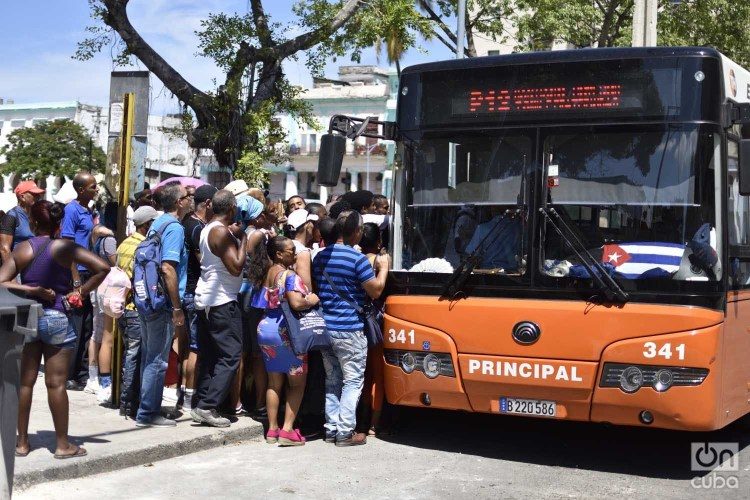The Cuban government announced the “organizational measures” taken to “mitigate the effects” on transportation as a result of the energy crisis the island is currently experiencing.
Given the low availability of diesel, a situation that the government has said is “temporary,” it was “necessary” to develop “a set of priorities in public transportation services,” according to First Deputy Minister of Transportation Marta Oramas, cited by the official daily Granma.
Oramas said that “there will be no affectations” in air services, which usually suffer from instability on the Island, although she acknowledged that “work is being done so that there are no difficulties in the specialized equipment used in the sustainability of the operations of the Cuban airports.”
It was also reported that in the case of canceled flights, their passengers will not be able to travel by bus―as was the case until now―as long as the current situation exists.
In the case of the railway, the train between Havana and Sancti Spíritus was temporarily suspended, as well as those traveling between Santa Clara and Santiago de Cuba, and between Camagüey and Bayamo, while the Havana-Pinar del Río train will only have two departures a week.
Díaz-Canel: “Cuba no está paralizada” pese a “situación energética”
The remaining national trains, between Havana and the main cities in the east of the country, were “readjusted” to a frequency of every four days, starting next Sunday, Eduardo Hernández, director of the Cuban Railroad Union, told reporters.
In addition, several intermediate stops that had been eliminated on the Havana-Santiago route were “restored,” “responding to the interests” of the travelers, while at each stop the waiting time of the trains increased to seven minutes “to facilitate the boarding of passengers.”
Regarding the national buses, the director of this service, Oscar Carvajal, explained that as of September 16 there will only be a daily round trip from Havana to the provincial capitals, which means a significant number of cancellations of trips while these measures are in force.
There will also be a daily departure between the Cuban capital and the cities of Manzanillo, in the province of Granma, and another to Baracoa, in Guantánamo, as well as the Havana-Batabanó route and vice versa for the service of boats to the Isla de la Juventud.
Regarding this last service, which is performed in the well-known catamarans, it was confirmed that also as of next Monday it will be reduced to a daily round trip.
Those who already have tickets reserved for canceled trips will be “prioritized” when there are available capacities, while those who no longer wish to travel will receive the “total reimbursement of the cost of the ticket,” according to the first deputy minister of transportation, who also announced that the sale of new tickets has been suspended for the moment.
In the case of public transportation, as was said, each territory will implement its own plan of measures, according to local characteristics and existing conditions.
In Havana, Granma points out, “adjustments are being made in the programming” of the buses and the “peak schedules” of passenger influx have been established as “priority.” In addition, “alternative measures” are being implemented to cover short stretches of the usual routes and the presence of state inspectors has increased.










